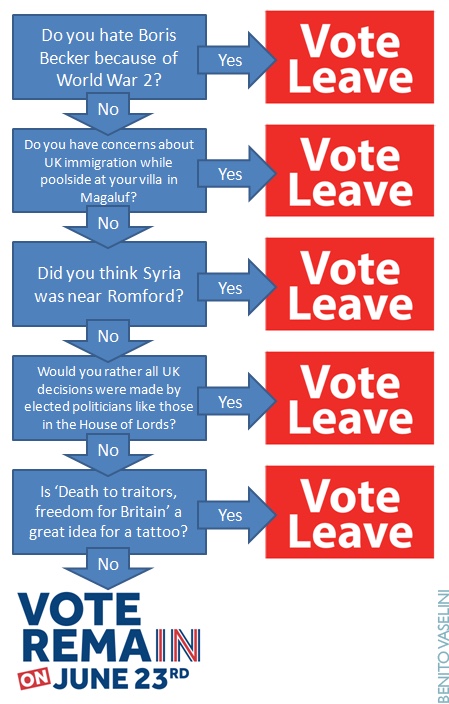Wuffles":24bpxy0c said:
Cheshirechappie":24bpxy0c said:
Ever voted for an EU law proposer?
The answer is no, because there is no democratic mechanism that allows it.
Edit to add - I make no apology for banging on about it, because for me it's possibly the most important argument in the whole debate. UK lawmakers are elected, and accountable through the ballot box, EU ones are appointed, and unaccountable. In the UK, the elected body (the Commons) has primacy, in the EU the appointed body (the Commission) has primacy.
I really believe that if the EU is to serve the PEOPLE it governs, the body having primacy must be the European Parliament, not the Commission. The only way I can see to put that point democratically in any way the EU will take the slightest notice of, is to vote Leave.
Pop those blinkers off for a second, if Lords can reject a law being proposed, does that not by definition make them law makers. - does to my mind. Not to mention the unelected civil servants sitting in the wings.
I'm wasting my typing on you, I can tell. Best of luck in the vote tomorrow.
Not true that the Lords can reject all bills. They can't reject bills relating to money, or those enacting government manifesto pledges. They can also be over-ridden by the Commons using the Parliament Act. The elected chamber thus has primacy.
This from Wikipedia;
Legislative functions[edit]
Further information: Act of Parliament
The House of Lords meets in a chamber in the Palace of Westminster.
Legislation, with the exception of money bills, may be introduced in either House.
The House of Lords debates legislation, and has power to amend or reject bills. However, the power of the Lords to reject a bill passed by the House of Commons is severely restricted by the Parliament Acts. Under those Acts, certain types of bills may be presented for the Royal Assent without the consent of the House of Lords (i.e. the Commons can override the Lords' veto). The House of Lords cannot delay a money bill (a bill that, in the view of the Speaker of the House of Commons, solely concerns national taxation or public funds) for more than one month.
Other public bills cannot be delayed by the House of Lords for more than two parliamentary sessions, or one calendar year. These provisions, however, only apply to public bills that originate in the House of Commons, and cannot have the effect of extending a parliamentary term beyond five years. A further restriction is a constitutional convention known as the Salisbury Convention, which means that the House of Lords does not oppose legislation promised in the Government's election manifesto.
By a custom that prevailed even before the Parliament Acts, the House of Lords is further restrained insofar as financial bills are concerned. The House of Lords may neither originate a bill concerning taxation or Supply (supply of treasury or exchequer funds), nor amend a bill so as to insert a taxation or Supply-related provision. (The House of Commons, however, often waives its privileges and allows the Upper House to make amendments with financial implications.) Moreover, the Upper House may not amend any Supply Bill. The House of Lords formerly maintained the absolute power to reject a bill relating to revenue or Supply, but this power was curtailed by the Parliament Acts, as aforementioned.
Edit to add - I was wrong to say that only the Commons could propose law. The Lords can too. However, any law proposed in either Lords or Commons must receive the assent of both Houses if it is to become Statute.





